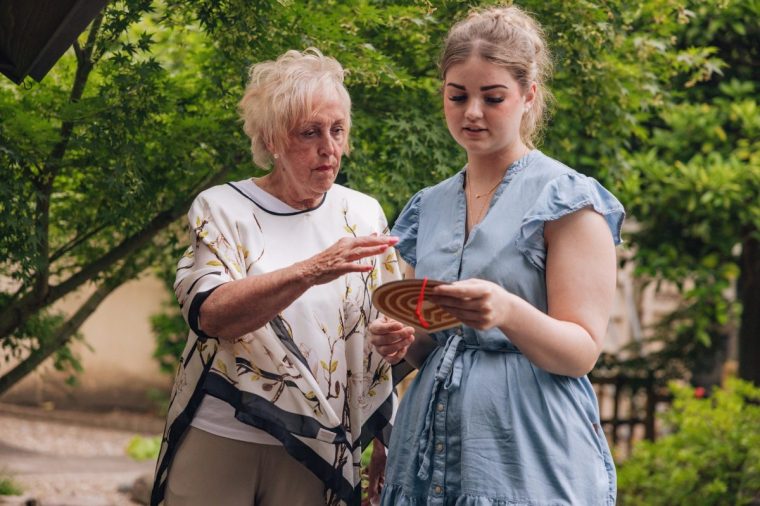Boomers and Gen Zers are paired up and flown to Tokyo, but this new travel competition lacks the excitement of the series it takes after
Forget superhero movies or Taylor Swift diss tracks. If there’s a booming business in modern entertainment, it is the high-concept game show – inevitably followed by a deluge of shameless copycats. Just look at The Traitors, which, faster than a flick of Claudia Winkleman’s fringe, has been ripped off over and over.
That is also the case with the BBC’s Race Across The World – a huge success and a clear inspiration for Worlds Apart, down to the use of “World” in the title and the concept of duos of contestants parachuted into foreign parts and forced to rely on their quick-thinking and will to win.
As bare-faced homages go, Worlds Apart at least tries to introduce a new element – albeit with decidedly ho-hum results. The show’s 12 volunteers are sent to Tokyo and tasked with collecting prize-winning coins, armed only with a few clues and their smartphone maps. But instead of having friends or family members work together, as in Race Across the World, it pairs participants from either end of the age spectrum.

Can confused boomers and attention-deficient Gen Zers put aside their mutual incomprehension and negotiate the madness of Tokyo, following a trail of figurative breadcrumbs in search of a cash bonanza?
This feels like a gimmick at first, but the age differences bring a compelling human element to the action. The contestants in their sixties, seventies and eighties have a wealth of life experience – but they have also gone through their share of challenges. “Travelling for me – it means I can speak to people,” says 68-year-old widow Rosie, who reveals she usually sits “at home in my bungalow… I don’t talk to anybody for maybe two weeks at a time”.
Meanwhile, 80-year-old Barbara, from Staffordshire, explains that since her husband’s death, her children had urged her to try solo travel – but that it seems pointless. “When I come back home, I have no one to tell.”
The kids – none of whom have previously gone abroad on their own – have their struggles, too. Aaron, 18, from Blackpool, explains that foreign holidays aren’t a common occurrence where he’s from. “You don’t see people from the areas I’ve grown up in with that much money,” he says. Charlotte, 25, from Swansea, works in a supermarket and spends much of her spare time looking after her disabled parents. Win Worlds Apart’s £50,000 top prize and she will buy her mum an electric wheelchair. “I don’t want to push her around forever.”
With a big wedge of dosh up for grabs, the pressure is on – or at least it soon will be. A preview of future episodes just before the final credits features fraying tempers and flowing tears. Unfortunately, such drama is absent from an opening instalment that badly needed more urgency.

One problem is that the challenges are low-stakes and a bit dull – and don’t play into the differences in outlook between the old and young competitors. For instance, Rosie and Lawrence, 24, have to locate a “temple of technology” – i.e. an electronics shop – then guess the year of manufacture of various gadgets (a Tamagotchi, Nintendo Switch, etc).
Elsewhere, retired GP Tony from Manchester and Emma, who is 18 and grew up in care, are sent to an open air market and pick out bowls identical to those from which they’ve just eaten at a restaurant (one coin per correct answer). It’s about as exciting as it sounds.
Everyone is thoroughly amiable, and it’s encouraging to see people at such radically different life stages working together. Tokyo looks fantastic, too: the producers have done well in capturing the overwhelming grey vastness of a city where dazzling neon mingles with brooding clouds and forbidding skyscrapers.
Sadly, it lacks the pulse-pounding, beat-the-clock quality of similar outings. There are many sweet moments between the contestants, but judged as a game show, it fails to hit the jackpot.
‘Worlds Apart’ continues next Tuesday at 9.15pm on Channel 4
